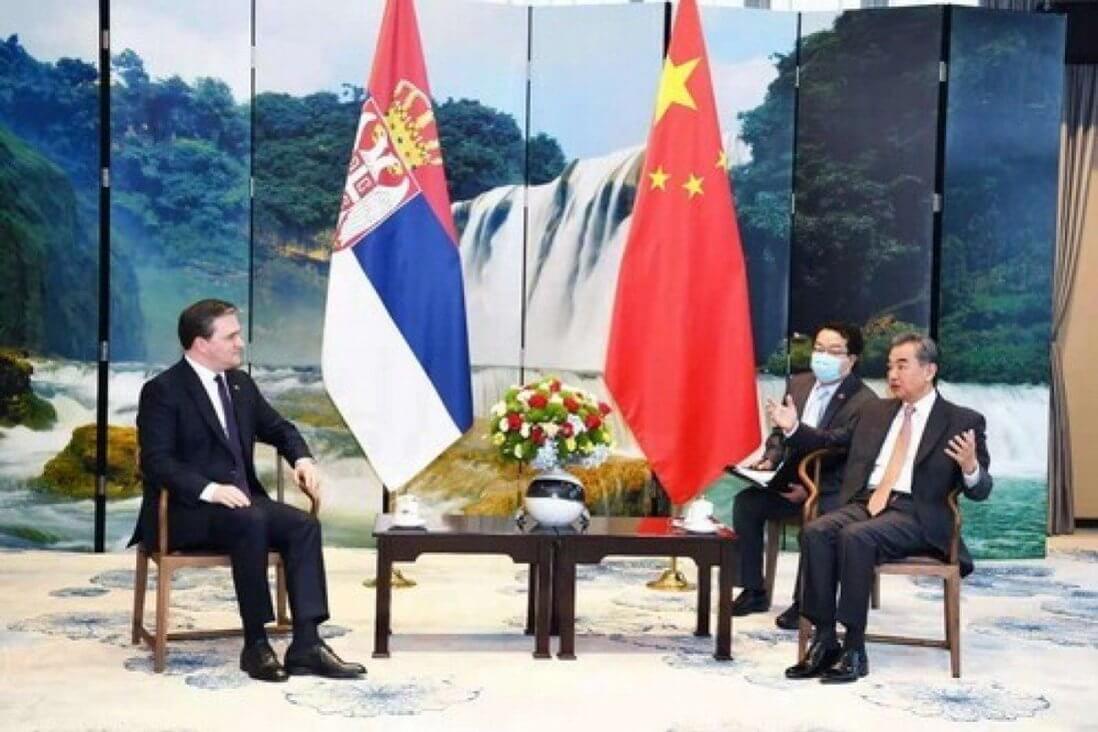Polish Foreign Minister (FM) Zbigniew Rau, Serbian FM Nikola Selaković, Irish Minister for Foreign Affairs and Defence Simon Coveney, and Hungarian Minister of Foreign Affairs and Trade Péter Szijjártó are visiting China from May 29 to May 31 after an invitation from Chinese FM and State Councillor Wang Yi. The meetings, which are the first face-to-face meetings to be held between China and representatives of the European Union (EU) since the European Parliament’s official suspension of the Comprehensive Agreement on Investment (CAI), are being held in Guiyang City, located in the southwestern Guizhou Province. Through the meetings, the leaders aim to exchange views on bilateral relations, regional cooperation, and China-Europe relations.
In his meeting with Poland, Wang called for enhanced cooperation in areas including trade, logistics, health care, technological innovation, energy, and digital economy, and to jointly push forward the innovation-driven economy. In response, Rau expressed hope that the export of agricultural products to China can be expanded and that bilateral cooperation can be deepened in areas such as trade, investment, logistics, and education. He also said that the China-EU investment agreement is “the best choice,” and “suits the interests of the two sides”; he thus called on China and the EU to work through their differences to implement the deal.
During China’s meeting with Serbia on Saturday, FM Selaković spoke highly of the Belt and Road Initiative (BRI) and China’s vaccine diplomacy. Referring to the construction of the Budapest-Belgrade railway, the first phase of which is going to be completed by the end of this year and will connect Belgrade with the second biggest city of Serbia, Novi Sad, the Selaković said, “It is about connectivity between southeastern Europe with central Europe. We are grateful for the Belt and Road Initiative, which is such a historical development initiative that gathers many nations in one huge project.” In addition, both countries also agreed to expand cooperation in infrastructure, 5G construction and the Beijing Winter Olympics, as they reached six points of consensus.
While details of Wang’s meetings with Hungary and Ireland have not been made public yet, it is expected that they were along similar lines in order to build trust with the EU since the CAI fell through. Speaking on what could be expected from the visit, Chinese Foreign Ministry spokesperson Zhao Lijian told a press conference on Friday that “Poland, Serbia, Ireland and Hungary are China’s important cooperation partners in Europe and have long been engaged in friendly relations with China.” He further added that “China hopes to enhance political mutual trust and deepen pragmatic cooperation with the above four countries through this visit, and jointly promote post-pandemic economic recovery, so as to inject new impetus to China’s relations with the four countries, and achieve comprehensive and balanced development of China-Europe relations.”
The meetings follow the EU’s decision to pass a motion recommending to formally freeze the EU-China CAI with an overwhelming majority, earlier this month. The resolution reasoned that China’s human rights record was “at its worst since the Tiananmen Square Massacre” and that the freeze was aimed at protesting against the ongoing violations in Hong Kong and Xinjiang, where Beijing has significantly curbed civil liberties. The CAI, which was signed in December last year, is expected to give EU firms better access to the Chinese market, improve competition conditions, remove barriers to joint-venture requirements and caps on foreign ownership, and protect foreign investments in China for certain EU industries, such as new energy vehicles, cloud computing services, financial services, and health.
The current meetings reflect China’s renewed efforts to build back trust with European powers in order to resume progress made towards materialising the CAI.
EU Ministers Hold First Meeting In China Since CAI Suspension
Diplomats from Poland, Serbia, Ireland, and Hungary met with Chinese FM Wang Yi over the weekend to discuss bilateral relations following the EU’s suspension of its investment agreement with China.
May 31, 2021

SOURCE: FMPRC
